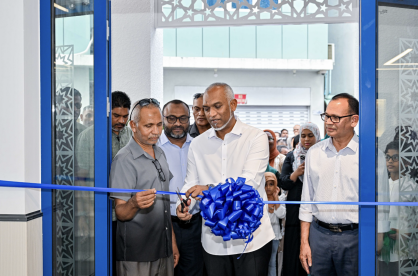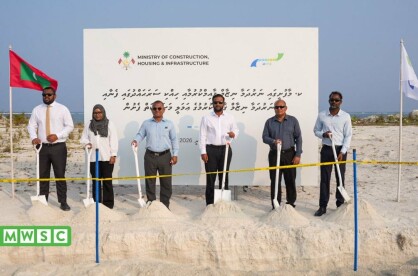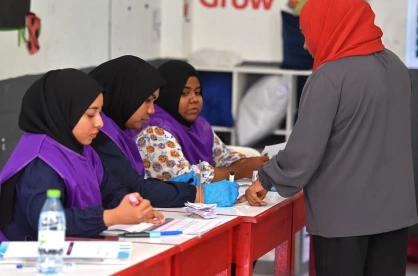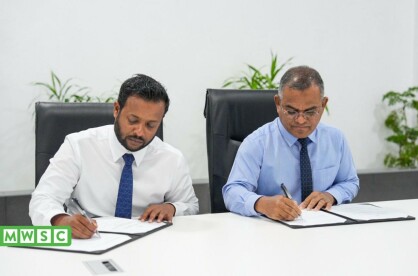How Aasandha works
How does the state's insurance scheme work?

MFR Images
How does the state's insurance scheme work?

MFR Images
The state enterprise Aasandha Company was first established in 2011 and is mandated to administer and manage the national health insurance scheme now known as “Husnuvaa Aasandha,” by facilitating access to affordable and free medical assistance for all Maldivian citizens. The scheme includes coverage of specified inpatient and outpatient treatments and medication from all public hospitals and health centers as well as health facilities empaneled by Aasandha. The scheme, fully financed by the government, has enabled access to health care for all across the nation.
Aasandha initially covered patient treatments with an overall annual cap of MVR100,000 per head. Recently, the scheme was relaunched as Husnuvaa Aasandha, removing the cap per head to unlimited healthcare. This extends to medical services prescribed and recommended by medical doctors both in the Maldives and overseas. The scheme covers medical transportation costs of emergency cases, annual medical checkups (below 18 years and above 30 years), all medical costs associated with pregnancy and treatment costs for people with special needs and terminally ill patients.
Husnuvaa Aasandha, being a cashless scheme, does not reimburse claims and cash payments made by the patients. A number of exclusions under the scheme are listed on the Aasandha website.
The government, in 2019, spent more than MVR2.4 billion on the Aasandha scheme, with 60 percent (MVR1.4 billion) on payments to hospitals and 32 percent (MVR 766 million) to pharmacies. The government also paid MVR83 million to various clinics, and spent MVR74 million on air tickets during the same year.

The company introduced its “Meranaa” health scheme in 2019, to provide financial assistance in healthcare to Maldivians residing in the countries - Sri Lanka, India, and Malaysia, where there is a large Maldivian diaspora. The scheme guarantees each registered individual a coverage of up to MVR150,000 at specific, registered hospitals. Patients are reimbursed 65 percent on services covered under the scheme. Registered patients are to submit copies of paid bills along with reimbursement form to Aasandha for claim. There are staff assigned in selected countries, who help Maldivians living in those countries.
Aasandha coordinates with local health centers in arranging transfer of patients requiring urgent medical service/treatment to the closest health center. The service is also provided for critically ill patients requiring immediate medical treatments where a delay in treatment can be fatal and cause permanent disabilities.
The mode of transfer defers based on the patient's condition, distance and available means of travel to the nearest health facility. If a sea ambulance is unavailable, private speed boats may be hired where cost of hiring must be approved by Aasandha prior to travel.
All Maldivians with a national ID can obtain services and treatments under the scheme from all public health facilities. Patients may need to pay extra to obtain services from private hospitals and clinics, where the coverage is partial.
Full list of Aasandha providers are also available on the website at; https://aasandha.mv/en/scheme/empanelled-facilities-local
Aasandha provides cover for overseas treatment if the required medical treatment is not available in Maldives. Referrals for treatment abroad is made by specialist doctors treating patients at Aasandha empaneled facilities. Aasandha reviews and approves/rejects overseas referral applications within 24 hours of application with all necessary documents. In some cases, if further discussion with the concerned doctors is required, it may take up to 3 days to receive the decision on the application.
It is important to note that when applying for treatments overseas, a recommendation form to be filled by specialist consultant in public health care centers and Aasandha empaneled healthcare centers is required. Aasandha covers only economy class tickets, and visa arrangements have to be made by the patient. If in any case the patient is unable to travel during the specified date, “date change” and “no show” fees are not borne by Aasandha and has to be paid by the patient. Hence, Aasandha advises patients to travel within 30 days, starting from the application date. If not, the case will be dropped by Aasandha, and the patient will be required to apply for approval again.


According to Aasandha Company, it has signed a tripartite agreement with the National Social Protection Agency (NSPA), and the Ministry of Finance to ensure smooth operations. Under this agreement, all inpatient and outpatient services are set according to the prices in the main government hospital, IGMH.
When a Maldivian national obtains services from a private hospital, the agreed price is covered by the Aasandha Company, and is immediately recorded in the Aasandha portal. The patient is required to make any payments beyond this, as a co-payment.
Private hospitals are required to send in invoices along with supporting documentation to Aasandha Company, which are then forwarded to NSPA. The Ministry of Finance pays the hospital or vendor directly.
According to the Managing Director of Aasandha, Ms. Mariyam Shafeeq, one of the biggest challenges on the fiscal side is the issue of medicines from pharmacies, which are not harmonized yet. Meaning that medicines are priced differently at different pharmacies, leading to major leakages from taxpayer funds.
Ms. Shafeeq also said that efforts were being made to reform the scheme in order to make it more fiscally sustainable. According to Ms. Shafeeq, the main focus at the moment is on stopping leakages, by strengthening control measures to prevent misuse of the scheme. As such, all island health centres have now been integrated into their system, along with the main hospitals in Male’.



